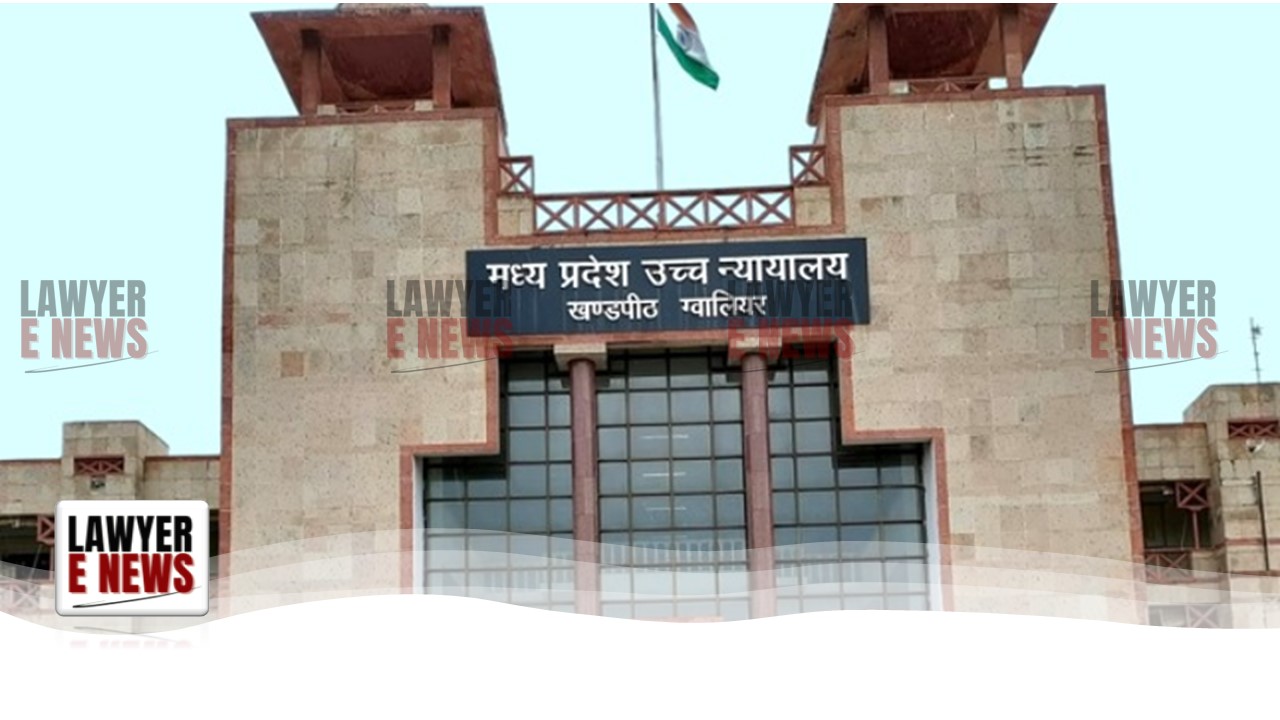-
by Admin
15 February 2026 5:35 AM



decision to frame charges of abetment to suicide under Section 306 of the Indian Penal Code (IPC) along with common intention under Section 34 IPC against the petitioners. The Court held that there was enough prima facie evidence to proceed with the trial, citing the deceased’s suicide note and witness statements that implicated the petitioners in sustained harassment and coercion.
The case arose from the tragic death of Chetan Sonava, who allegedly died by suicide after enduring prolonged harassment by his in-laws, who had been coercing him to pay a substantial sum of Rs. 50 lakh. According to the prosecution, the deceased was pressured by his father-in-law, mother-in-law, and other family members, including the petitioners, who demanded that the deceased make the payment to reunite with his wife. It was alleged that the emotional and financial strain created by this pressure led the deceased to take his own life, leaving behind a suicide note detailing the harassment he faced. Subsequently, the police registered an FIR under Sections 306 and 34 IPC, and the trial court framed charges accordingly.
1. Prima Facie Evidence and Framing of Charges Under Section 306 IPC
The primary issue was whether there was enough prima facie evidence to frame charges of abetment to suicide against the petitioners under Section 306 IPC, which pertains to abetment to suicide. The petitioners argued that there was insufficient evidence linking their actions to the deceased’s suicide, claiming that the case was based on vague and unsupported allegations.
However, the High Court, referencing Chitresh Kumar Chopra v. State (Govt. of NCT of Delhi) (2009), reiterated that for abetment charges, the actions or omissions of the accused need only create circumstances that would plausibly drive the deceased to commit suicide. The Court found that the deceased’s suicide note and witness statements describing financial harassment and coercion constituted a prima facie case of abetment.
“Where the accused, by their acts or omission or by a continued course of conduct, create circumstances where the deceased was left with no other option except to commit suicide, an ‘instigation’ may have to be inferred.” – Chitresh Kumar Chopra v. State (Govt. of NCT of Delhi)
2. Judicial Threshold for Framing Charges
The Court further emphasized that at the charge-framing stage, the court's role is limited to evaluating whether there is a prima facie case based on the evidence presented. It is not necessary to determine the likelihood of conviction at this stage. The High Court noted that the trial court's discretion should generally be respected unless the allegations are patently absurd or improbable. This principle was reinforced by the Supreme Court in Amit Kapoor v. Ramesh Chander (2012), where it was held that quashing charges should be an exception, not the rule.
“At the stage of framing of charge, the court has to consider the material with a view to find out if there is ground for presuming that the accused has committed an offence, not for the purpose of determining if the case will lead to a conviction.” – State of M.P. v. Deepak (2019)
3. Role of High Court in Revisional Jurisdiction
The High Court also highlighted the limited scope of interference in revisional jurisdiction at the charge-framing stage. The Court, referencing Rajeev Kaurav v. Baishab and Others (2020), stressed that a detailed examination of the evidence is not appropriate at this stage, and that a trial court's decision to frame charges should only be overturned in cases of manifest illegality. The Court found that the trial court had correctly exercised its discretion, and any interference would be premature.
“The High Court ought not to interfere unless the allegations are so absurd that no reasonable person can draw any inference of guilt from them. The proper forum for assessing credibility and evidence is the trial stage.” – Amit Kapoor v. Ramesh Chander (2012)
4. Applicability of Section 107 IPC – Definition of Abetment
The petitioners argued that the allegations did not meet the threshold of “abetment” under Section 107 IPC, which defines abetment as instigation, conspiracy, or intentional aiding. They contended that their actions did not constitute “instigation” or “intentional aiding” as required under the section.
The High Court, however, found that the cumulative impact of the actions described in the suicide note and witness statements could reasonably be interpreted as constituting instigation. The Court pointed out that continuous pressure and demands, particularly when made in coercive circumstances, can amount to mental harassment, thereby meeting the threshold of “abetment” under Section 107 IPC.
The Madhya Pradesh High Court dismissed the revision petition, upholding the trial court’s decision to frame charges under Sections 306 and 34 IPC. The Court found that the trial court’s decision was legally sound and supported by sufficient prima facie evidence. It emphasized that the trial was the appropriate forum for assessing the full merits of the case, including the credibility of witness statements and the authenticity of the suicide note.
High Judicial Threshold at Charge-Framing Stage: The Court underscored that at the stage of framing charges, a detailed evidentiary assessment is inappropriate. Only a prima facie case is required to proceed to trial, and any detailed examination should be reserved for the trial stage.
Cumulative Conduct as Abetment: The Court affirmed that sustained pressure and harassment can collectively amount to abetment under Section 306 IPC, even if individual actions may not meet the threshold.
Limited Scope of Revisional Jurisdiction: The decision reinforced the principle that High Courts should exercise restraint in revisional jurisdiction, particularly at the charge-framing stage, and avoid detailed scrutiny of evidence to prevent disrupting the prosecution’s case prematurely.
Date of Decision: October 23, 2024
